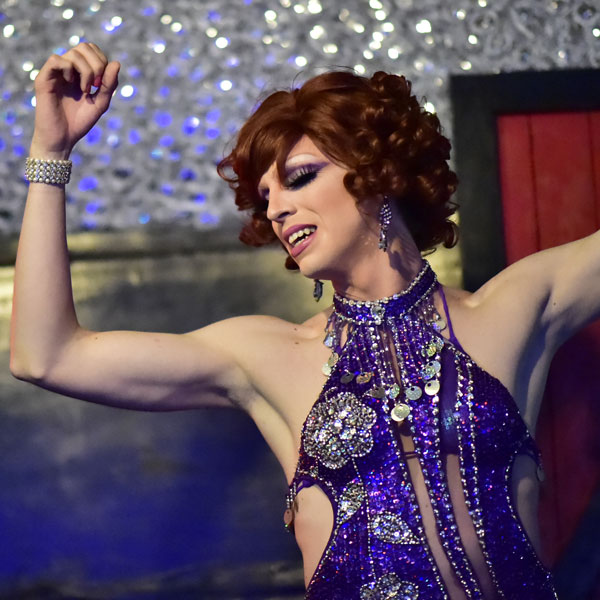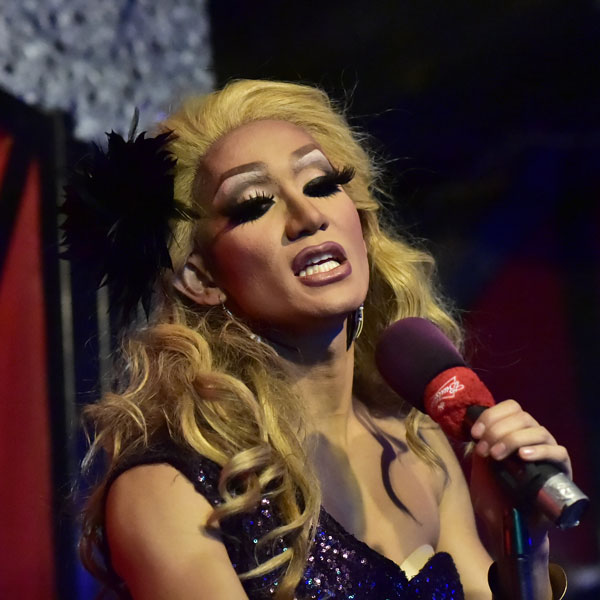
BY JORDAN MUTO | Facebook recently announced that it would re-evaluate its name policy to suit the needs of users with stage names, such as drag queens. However, exactly how the name policy will change remains unclear.
Since September, the social network site has actively enforced its “real” name policy for drag queens, in particular, advising them to identify themselves by their legal names or their profiles would be shutdown.
Facebook’s announcement comes in reaction to widespread discontent spearheaded by Sister Roma, a popular drag queen in San Francisco, and her fellow queens. Over the last few weeks, this frustration among drag queens has spread from coast to coast. There are drag queens who have gone as far as boycotting Facebook and joining Ello, a social network site in beta testing. Some have even incorporated the name policy controversy into their performances.
The Frisco queens have led the movement against Facebook and have started a Twitter campaign with the hashtag #mynameis. However, in New York City, the cross-dressing entertainers have not been so publicly outspoken, but they are no less upset. Some queens say that they have been singled out in contrast to other groups who also use stage names.
“I tried to sign on and got a message that this account does not exist,” said Pattaya Hart, a New York City drag queen who performs at Boots N Saddle, the popular Christopher St. drag queen venue.

After a show, she advised three prospective clients to direct message her on Facebook, but more than two weeks later, Hart has never received the messages.
“I tried to make a new account, but I got a message that said this name looks like it does not match your ID,” Hart said.
Hart has since switched to using her drag name in parentheses next to her male name and has changed the profile picture on this account to a photo as Pattaya, so there are no mistakes.
Like Hart, Fifi DuBois reported receiving a notification from Facebook about a week and a half ago telling her to change her name or her account would be terminated.
DuBois, a drag queen who works nights at Boots N Saddle, changed her profile to her male name, but worries that this will affect her interactions with fans.
“They are different businesses,” DuBois explained. “As a boy, I am a dancer and choreographer and that is its own business, and a drag queen is a different business.”
Among the many issues the queens face is the reality that most of them have other full-time jobs. The worlds of corporate America and drag are not always meant to intersect. In 34 states, an employer can legally fire someone based on their gender identity. However, New York is not one of those states.
“It’s like separation of church and state — separation of career and performing,” said M’Lady Uppercrust, a drag queen who performs at Boots N Saddle on Friday nights.
Facebook advised the queens to create their own pages for fans to like.
While DuBois also has a fan page now, it’s not the same.
“I have 300 likes on my page, but 3,000 friends on my profile,” said DuBois. “It’s not as easy to communicate with the ‘like page’ because it is not as personal.”
The fan page is too formal of an interaction for fans, added Hedda Lettuce, the famous New York-based drag queen and self-proclaimed “Queen of Green.”
“People don’t want to be considered a fan,” Lettuce said. “They want to be considered a friend even if they don’t know me.”
The problem for the drag queens is that when users like a page, it doesn’t mean the activity on that page will regularly show up in their newsfeed. The owner of the page must pay Facebook to be sponsored for exposure.
“They are trying to make money rather than a community,” Lettuce explained. “It has lost its central purpose of trying to bring people together. Drag queens are a central part of the gay community.”
Lettuce worries that Facebook doesn’t understand the gay community, and that the company’s policy impacts the business of drag queens who rely on social media for promoting shows.
“We are having to change the way we see ourselves on Facebook,” explained Jizzabella, another Big Apple-based drag queen. “They are saying what you are doing is not right — but it’s no one’s right to tell you that you can’t see yourself the way you are.”
The name policy controversy led to a nationwide petition, as well as an open letter informing Facebook that its name policy is unfair and impacts the people who need two identities for legitimate reasons, such as those who are performers, members of the L.G.B.T.Q. community or abuse survivors.
The flap raised the question: Why focus on the queens? Facebook said someone reported hundreds of drag queens using the site, but that Facebook didn’t notice the pattern among the several hundred thousand reports each week, according to a statement on the site released by Chris Cox, Facebook’s chief production officer.
Facebook explained that their intention was to not single out one group or community and that the policy was in effect to protect the most vulnerable on the Internet, according to Cox’s statement. However, Facebook, indicating it did not understand the broad effects of this policy, has since apologized, but has not determined how exactly or when the problem will be solved. Facebook could not be reached for comment.
Chris Wood is co-founder of the L.G.B.T. Technology Partnership, an organization that seeks to represent the interests of the L.G.B.T. community regarding technology and communication. He said the name policy debate transcends the queens’ concerns.
“The drag community has definitely been impacted,” Wood said. “But the issue is far and beyond — with women, transgender, gay, lesbian individuals who may not to want to be ‘out.’ ”
Others have noted that political activists and dissidents in repressive countries also have good reason not to use their real names on Facebook.


































